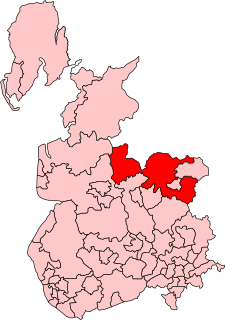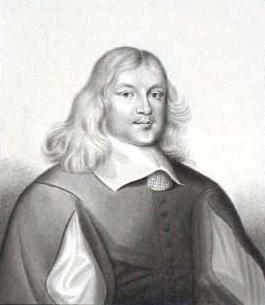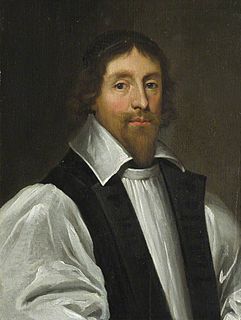Michael Purefoy (1562–1627) was an English politician who sat in the House of Commons in 1584 and from 1621 to 1622.

The House of Commons of England was the lower house of the Parliament of England from its development in the 14th century to the union of England and Scotland in 1707, when it was replaced by the House of Commons of Great Britain. In 1801, with the union of Great Britain and Ireland, that house was in turn replaced by the House of Commons of the United Kingdom.
Purefoy was the son of Thomas Purefoy of Caldecot and his wife Elizabeth Bradshaw, daughter of Robert Bradshaw of Morborne, Huntingdonshire. He matriculated from Peterhouse, Cambridge in 1576 and received BA from Magdalene College, Cambridge in 1582 and MA in 1585. [1] In 1584, he was elected Member of Parliament for Clitheroe. He was incorporated at Oxford University in 1598 and was a deputy official of the archdeaconry of Nottinghamshire from 1598. In 1521 he was elected MP for Nottingham. [2]

Peterhouse is a constituent college of the University of Cambridge. It is the oldest college of the university, having been founded in 1284 by Hugo de Balsham, Bishop of Ely, and granted its charter by King Edward I. Today, Peterhouse has 254 undergraduates, 116 full-time graduate students and 54 fellows. The official name of Peterhouse does not include "college", although "Peterhouse College" is often seen in public.

Magdalene College is a constituent college of the University of Cambridge. The college was founded in 1428 as a Benedictine hostel, in time coming to be known as Buckingham College, before being refounded in 1542 as the College of St Mary Magdalene. Magdalene counted some of the greatest men in the realm among its benefactors, including Britain's premier noble the Duke of Norfolk, the Duke of Buckingham and Lord Chief Justice Christopher Wray. Thomas Audley, Lord Chancellor under Henry VIII, was responsible for the refoundation of the college and also established its motto—garde ta foy. Audley's successors in the Mastership and as benefactors of the College were, however, prone to dire ends; several benefactors were arraigned at various stages on charges of high treason and executed.

Clitheroe was a parliamentary constituency in Lancashire.
Purefoy died unmarried in 1627 and was buried in Caldecote church, where a monument was erected by his cousin Gamaliel Purefoy. [2]










